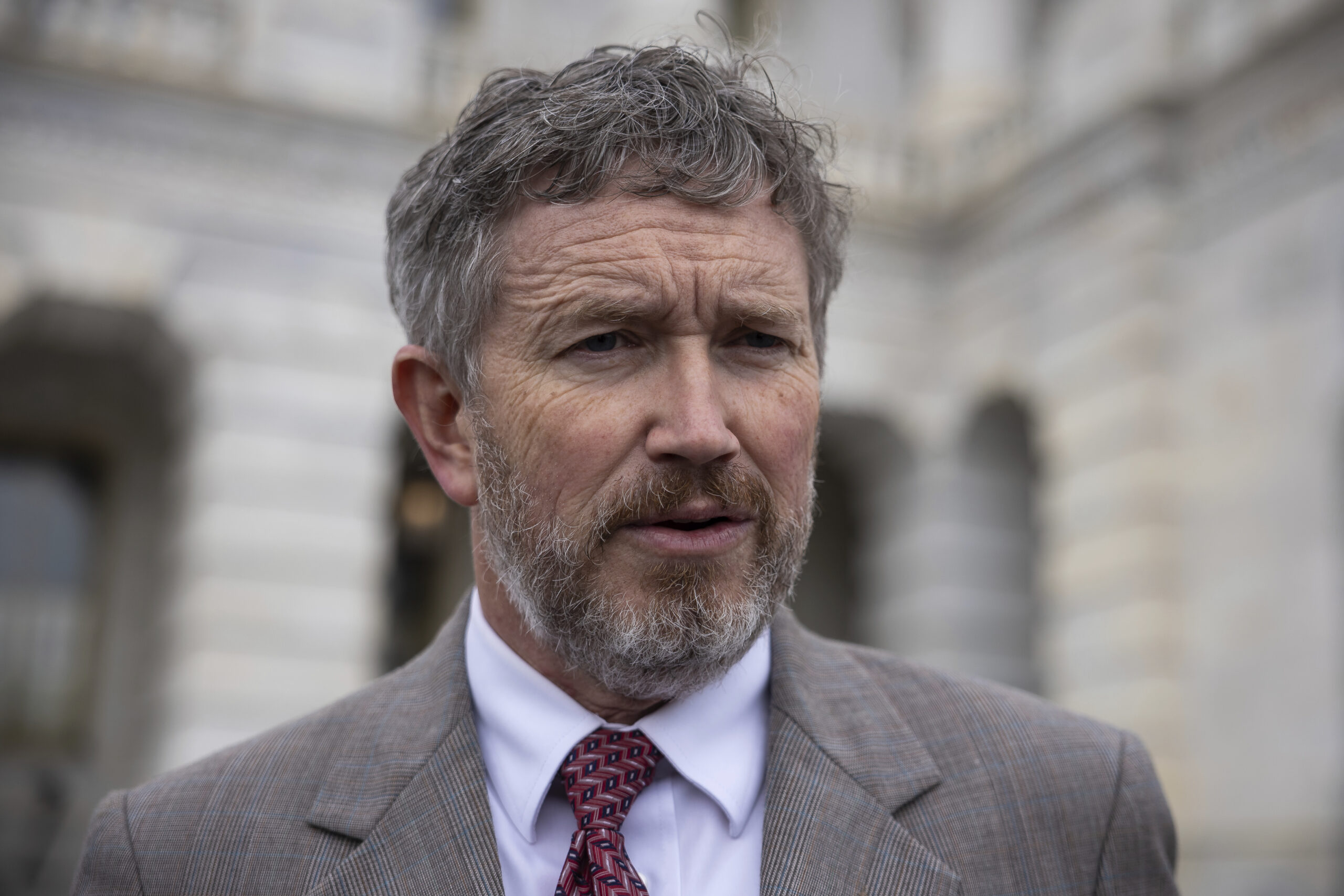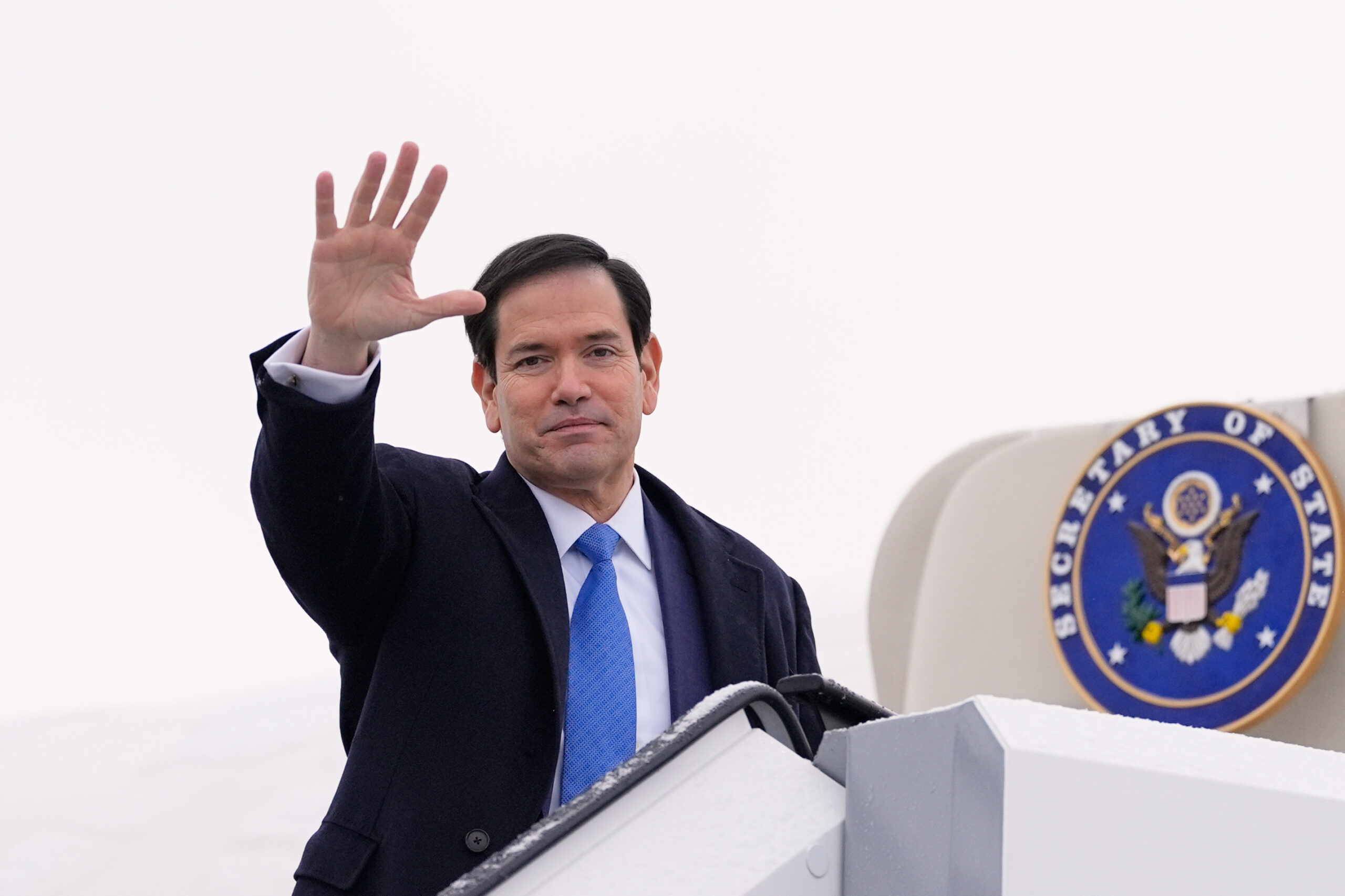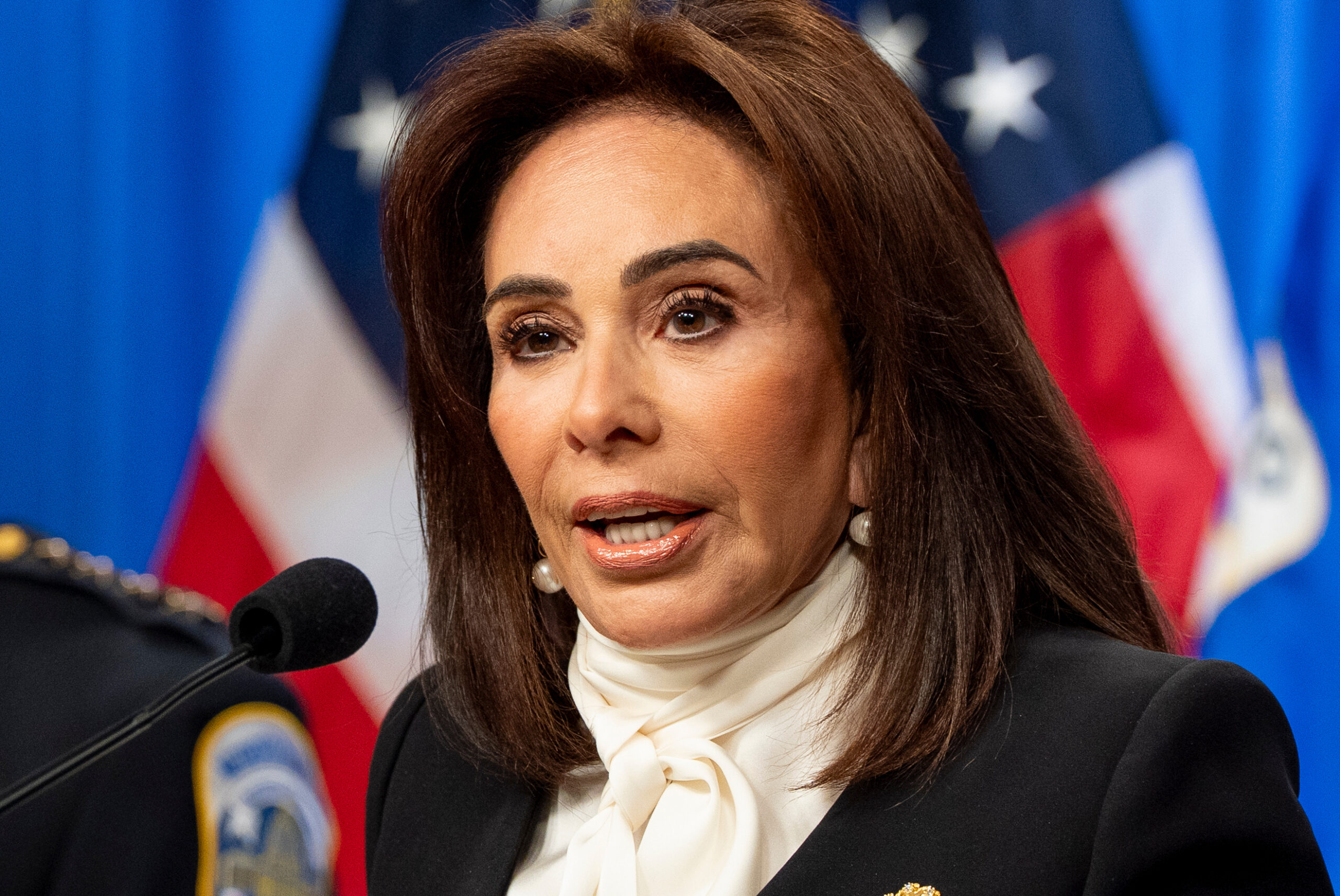Kentucky is famous for its bourbon, horses and college basketball. But in Rep. Thomas Massie’s fourth Congressional district, there are a few other pillars to know about: Cincinnati chili, served over spaghetti with Greek spices; a life-size Noah’s Arc; and a political culture that, in the words of Northern Kentucky’s political class, is a good fit for Massie’s libertarian conservatism — even if it means facing the wrath of President Donald Trump.
“Yes, we’re conservatives, but we also have independent thinking,” said Republican state Rep. TJ Roberts, a protege of Massie’s in Frankfort. “We have a consistent track record of having a very different taste, especially when we talk about foreign affairs.”
That taste has set Massie on a collision course with Trump, whom Massie has defied at key moments of his second presidency. In March, Massie ignored Trump’s wishes and voted “No” on the current continuing resolution to keep the government funded. Then, in May, Massie opposed Trump’s “big, beautiful bill,” which is to say, most of the president’s domestic agenda. Just a few weeks later, he took a swing at Trump’s foreign policy. “This is not Constitutional,” Massie said on X, embedding a screenshot of Trump’s blustery announcement that U.S. forces had struck Iran. Massie quickly threatened a war powers resolution, cosigned by Democrats, to rein Trump in.
“I am consequential here in Washington, D.C. In between launching B-2 bombers to the other side of the planet, the president spends some portion of his attention worried about what I’m going to do next,” said Massie, a 54-year-old, MIT-educated entrepreneur who founded a haptics company before moving back to his family home of Lewis County in the early 2000s.
Massie’s rebelliousness was hardly the type of behavior you’d expect from a rock-ribbed conservative representing a state that delivered Trump a 30-point margin. Or was it? Kentucky Republicans have been needling Trump like it’s a part-time job ever since his return to the White House — from Sen. Mitch McConnell’s long feud with Trump, to Sen. Rand Paul’s vote against the “big, beautiful bill” and support for a Democrat-led measure to end Trump’s tariffs on Canada.
Still, it’s one thing for a senator to put pressure on his party’s president. It’s riskier for a Republican House member to invite a Trump-backed primary challenge, as Massie has. He has drawn so much ire that Trump’s political machine dispatched MAGA campaign stars Chris LaCivita and Tony Fabrizio to find a suitable candidate to take him down.
“Thomas Massie’s constituents want a representative from KY-4 that will support lower taxes, protect the border and support the policies of President Trump that they all voted for,” said LaCivita, “instead of a grandstander who has never accomplished a thing for his constituents.” Trump, taking to his favorite platform of Truth Social, called Massie a “LOSER” who is just “Rand Paul Jr.,” and who needs to be replaced by an “American patriot.”
But Massie shrugged off the invective, convinced that he has a far better feel for his district than the president. After all, Trump failed to oust him in 2020.
“I don’t really think he has a vendetta against me,” Massie said. “He’s trying to keep the other people in lockstep with him by attacking me. He knows I can weather it.”
His confidence is based on the particular contours of the electorate in his district, which is focused around Cincinnati’s Northern Kentucky suburbs with a healthy bite of Appalachia and exurban Louisville. Local political professionals know Massie’s fief to be a quizzical mixture of many right-leaning factions that don’t always get along: suburbanites who identify with Ohio; Appalachians who are deeply skeptical about all forms of federal control; and a strong Catholic tradition that contrasts with the state’s Bible-thumping stereotype.
In the Northern Kentucky region alone, Massie says there are “a dozen different cities,” “about 20 mayors,” all of whom relish their independence.
While these voters welcomed Trump’s vitriolic attacks on Joe Biden, Kamala Harris, trans athletes and student-loan giveaways, they notably did not sign up for ballooning the deficit, expanding presidential power and engaging in another Middle Eastern conflict. Now, in the ramp-up to a possible primary, something strange is happening. Whether Massie means to or not, his defiant stand for libertarian principles is offering a roadmap for other critics of the president to do something many believe is impossible: turn some of his most ardent voters against his policies.
Thousands of voters in Kentucky take their libertarianism seriously enough that they’ve given their candidates a name: Liberty Republicans. They’re an emerging anti-establishment group in a party whose establishment is now represented by a certain New York real estate developer.
“I was the first. I was the spearhead,” state Rep. Savannah Maddox said about the clique of local GOP leaders who emulate Massie and Paul’s style. Their admiration for Massie may have something to do with the manner in which he lives his principles — namely, on his farm, off the grid in Appalachia, where self-sufficiency means building a robot chicken pen to care for his birds while he’s in D.C. Like Massie, the Liberty Republicans are a thorn in the state party’s side that neither outside money nor heavy-handed leadership can bring to heel.
Massie, who is famously not a team player in D.C., is happy to take credit for developing this bench of libertarian-leaning candidates in his district. In Massie’s telling, he’s fond of showing up at fundraisers for “state senators, state reps — even magistrates and county judge executives” to help them expand his revolution. He has deliberately focused on nurturing elected officials rather than seizing control of the party infrastructure.
“I have actually distributed about a quarter million dollars directly to local candidates,” Massie said. He boasted that his Liberty acolytes “were all challenged significantly in their last election, and they all survived.” Like him, the enmity they create in the capital seems only to amplify their appeal to voters back home.
Trey Grayson, a mainstream Republican and McConnell ally who served as Kentucky secretary of state and director of the Harvard Institute of Politics, and is a longtime Northern Kentucky resident, thinks that Massie’s ties with the Liberty group gives him “protection” and “reinforcement.”
Those benefits extend beyond state lines. In the age of the Internet and social media, such boosters as Elon Musk frequently amplify Massie’s libertarian message on X, which has helped him connect to a large pool of online donors. It’s this point that gives Massie his sense of confidence facing down the president and any of his surrogates.
In his view, Trump’s real weapon against Republicans who defy him is his ability to scare off donors.
“I have a fundraising model that is impervious to that,” he said, as he elaborated on all the money that he’s been able to source from fans online. According to Massie, he raised approximately $370,000; $50,000; and more than $180,000 in three separate weeks when he was in Trump’s crosshairs.
Those donors, he says, are pro-Trump. But they “want to see me here delivering their view.”
One person who seems to agree with that is Musk, who recently posted on X that he’d be supporting Massie’s campaign.
Massie said he hasn’t met Musk in real life, but that he’s “definitely a fan,” adding that he owns a Tesla and uses Starlink. When asked if Musk might intervene on his behalf with a super PAC, Massie said he didn’t know.
“I haven’t heard that he is, but I can tell you there will be a super PAC that will be helping me,” he teased.
Still, money isn’t everything, and while Massie has a large network of loyalists, they aren’t close to an organized machine: The very nature of libertarians makes them harder to corral.
Tres Watson, a consultant with ties to the GOP establishment, believes that some of Massie’s proteges are “sharp,” but “others are complete and absolute morons” whom party leaders have easily played off against one another. In other words, not the troops to go into battle with Trump.
Liberty Republicans themselves are quick to concede that they aren’t very organized. But their ability to hand out pamphlets at the county fair seems secondary to the larger point: Their existence proves that Massie’s message works in Kentucky. Trump’s team may have arrived at the same conclusion. On June 29, POLITICO reported that White House officials had contacted state Sen. Aaron Reed as a possible primary opponent. Reed, it turns out, has also been associated with the Liberty movement.
But Reed or any other candidate faces a tough task. Because finding a good lane to run in versus Massie won’t be easy. It’s one thing for Trump to force out an opponent like Sen. Thom Tillis, who attacks him from a centrist position, but entirely another to get rid of someone who frequently stands to the right of MAGA.
Massie’s critics and boosters both acknowledge that when he does cross the president, he usually does so in the name of guiding him back to their shared conservative principles. It’s a wise tactic to please voters who both love the president but also have a soft spot for anti-establishment figures. They are, after all, used to such leaders as his two GOP predecessors, the congressman-turned-Senator Jim Bunning, an irascible conservative who rarely shied away from conflict; and Rep. Geoff Davis, who came to politics as an outsider. Not to mention his across-the-river neighbors in the Cincinnati media market, Rep. Warren Davidson and Vice President JD Vance.
State Rep. Maddox put her finger on where she thinks the district’s pulse is today:
“President Trump is responding to an electorate of folks who asked for change,” she said. “But the way he is trying to evoke it is causing friction with the People’s branch of government, where our laws are made.”
In other words, her constituents love Trump’s agenda. But they’re more loyal to Massie’s principles of limited government.
Grayson thinks this district’s contrarianism is part of a much longer story.
“Kentucky has a very rural population compared to the nation. Those rural voters traditionally were pretty Democratic,” Grayson said. “The Fourth [district] was an exception. Where Thomas Massie lives was always Republican. It was a pro-union enclave during the Civil War.”
The Fourth district, that is to say, has historically been different. That history might be forgotten by the distillers on the Bourbon Trail or the businessmen sipping juleps at Churchill Downs. But those same Kentuckians are well acquainted with the vibeshift they feel whenever they cross into Boone, Kenton and Campbell counties, the longtime core of Massie’s district in Northern Kentucky. Though its population is on comparable footing with Louisville and Lexington — the state’s two largest cities, where establishment Republicans live — almost no one in either of those cities would ever think of Northern Kentucky as a peer. To them, Massie’s constituents live in suburban spillover from Cincinnati that does not belong in their blessed Bluegrass.
Snide regionalism aside, they might be half-right.
“A lot of people have moved over from Ohio for jobs, cheap land. They’re not as connected to the state,” Grayson said.
That much could be said about much of the Ohio River Valley, where communities often have little in common with the states they’re drawn into. Independence is part of life here, and in Massie’s district, it’s also baked into the politics.
“I’m just going to keep supporting Donald Trump and Thomas Massie, and hope they can come to a resolution, because I think we need the two working together very badly,” said Rep. Roberts. “Both have a constituency that represents the future of the GOP in America.”




